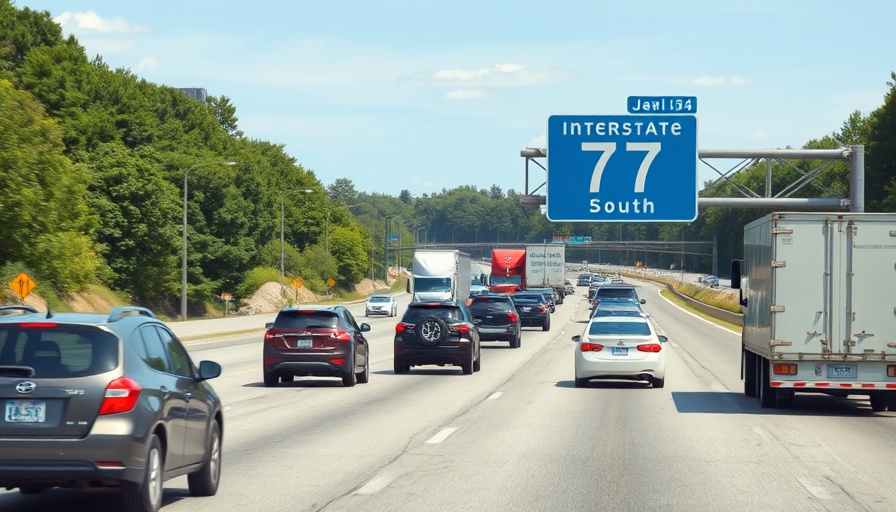
Charlotte's Major Toll Lane Expansion Debate
In a decisive move for Charlotte's transportation future, local leaders are set to review an ambitious proposal for the expansion of I-77 toll lanes south of Uptown. This initiative is part of an effort to address ongoing traffic congestion issues and is presented via a public-private partnership (P3) approach.
What You Need to Know About the Proposal
The proposal was introduced during the recent Charlotte Regional Transportation Planning Organization (CRTPO) meeting, where members began examining a key document outlining the conditions for collaboration between the North Carolina Department of Transportation (NCDOT) and private developers. While the traditional state-funding model for infrastructure was seen as unfeasible, the P3 approach has emerged as the best option to facilitate this critical project.
A Timeline of Developments
This proposal has been in the making for more than a year, with thorough evaluations and discussions among concerned parties. In February 2023, CRTPO endorsed a comparative analysis that the NCDOT presented, asserting that the public-private framework is the only viable path forward. Following that, support was further solidified when the board agreed to let NCDOT proceed with these plans in October 2024, contingent on input from a working group designed to shape project objectives. After months of discussions, this group's input has been condensed into the current contract terms.
Community Concerns and Insights
The public reaction to the toll lane expansion has been mixed. Many community members express concern over the affordability and impact of tolling on daily commuters. In response, CRTPO will allow residents to voice their opinions on the overall 2055 Metropolitan Transportation Plan, which encompasses over 200 future projects, including new light rail and bus transit lanes, from June 19 to July 19. This outreach reflects a commitment to consider community feedback while planning for the future.
Expectations Ahead
If the 60-day review period concludes without objections, NCDOT is on track to announce a Request for Qualifications (RFQ) by mid-August. Residents of Charlotte and neighboring areas should stay informed about the development of this opportunity as it holds the potential to alleviate some of the traffic burden affecting daily life.
Broader Transportation Plans on the Horizon
This toll lane initiative is merely a piece of the larger transportation strategy for the Charlotte area. The CRTPO has laid out a comprehensive vision for the future, which calls for a better-integrated public transit system that supports sustainable urban growth. As Charlotte continues to grow—projected to hit a significant population milestone of over a million residents—the need for effective transportation infrastructure becomes ever more crucial.
The meeting scheduled for 6 p.m. at the Charlotte-Mecklenburg Government Center is not just a discussion on toll lanes; it’s a pivotal moment for shaping the city’s transportation landscape. Keeping active and informed participation from residents will be key to ensuring that the plans reflect the needs and concerns of the community.
 Add Row
Add Row  Add
Add 




 Add Row
Add Row  Add
Add 

Write A Comment